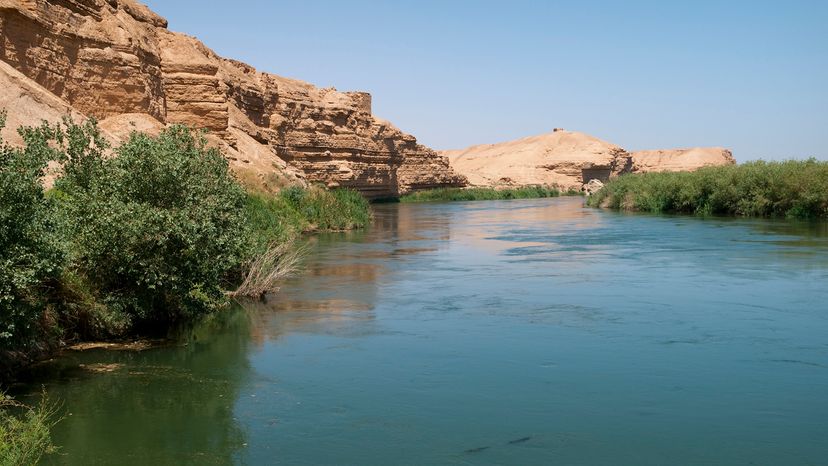This essential water system comprises two rivers (known today as the Tigris and Euphrates rivers) that flow North to South from Turkey to the Persian Gulf.
Headwaters of the Tigris River
The Tigris River begins at the Taurus Mountains of Eastern Turkey and flows along the Syrian-Turkish border before branching off into smaller tributaries. The Tigris then connects with the Euphrates near the town of al-Qurnah to form the Shatt-al-Arab River.
Dams and Levees
Each river flows from the Taurus Mountains, heading south toward the Persian Gulf. As the rivers descend toward the Syrian-Turkish border, they are controlled by manmade dams and levees that maintain a minimum average flow of 500 cubic meters per second (nearly 18,000 cubic ft./second).
Central Flood Plain
The most important aspect of these water resources for humans is that the Euphrates River basins offer some of the most fertile land in the region.
However, humans have done little to return the favor, as pollution, war and other misguided human intervention have led to increased water scarcity and higher contaminated water levels in the region.
